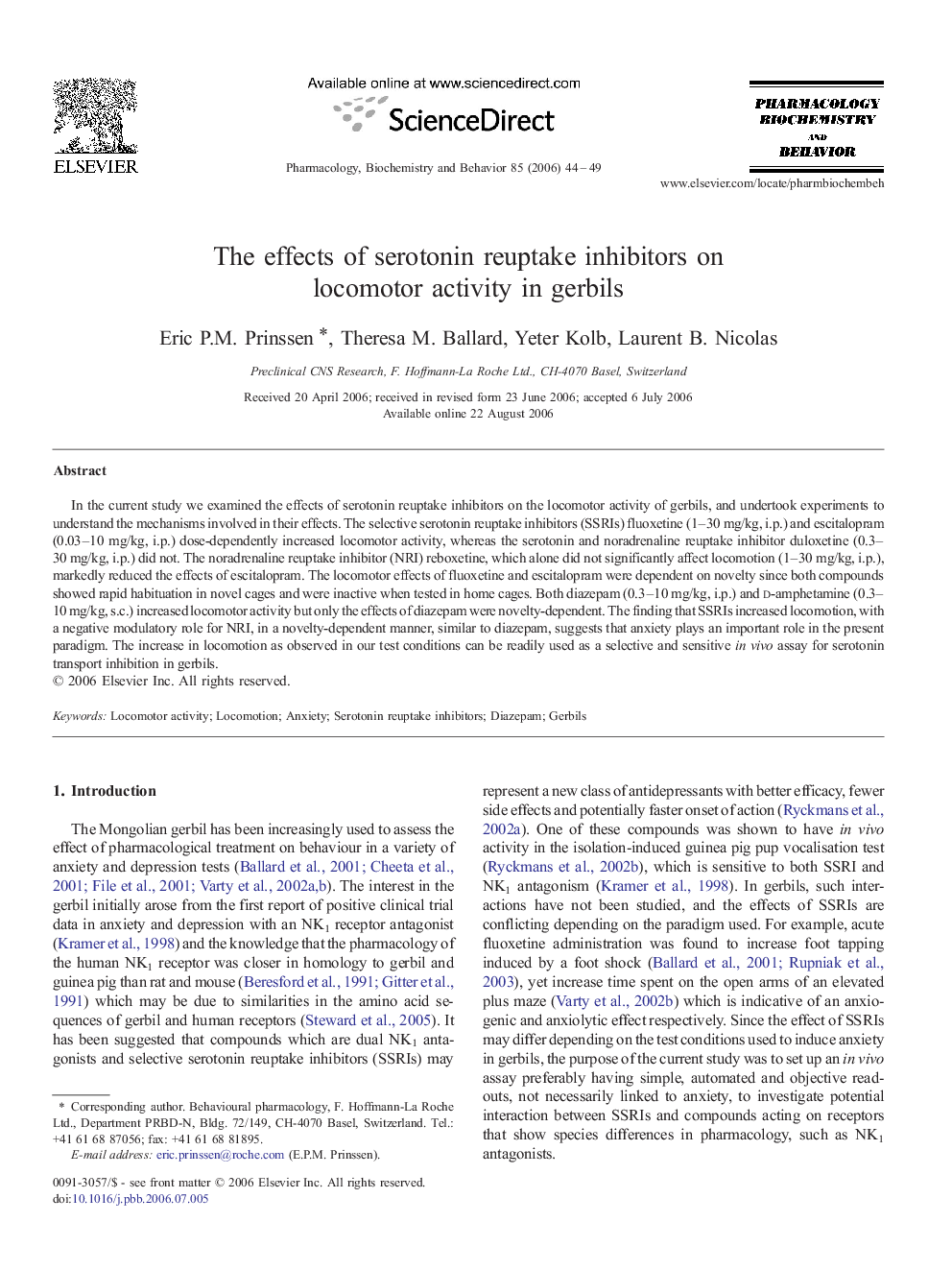| Article ID | Journal | Published Year | Pages | File Type |
|---|---|---|---|---|
| 2014482 | Pharmacology Biochemistry and Behavior | 2006 | 6 Pages |
Abstract
In the current study we examined the effects of serotonin reuptake inhibitors on the locomotor activity of gerbils, and undertook experiments to understand the mechanisms involved in their effects. The selective serotonin reuptake inhibitors (SSRIs) fluoxetine (1-30Â mg/kg, i.p.) and escitalopram (0.03-10Â mg/kg, i.p.) dose-dependently increased locomotor activity, whereas the serotonin and noradrenaline reuptake inhibitor duloxetine (0.3-30Â mg/kg, i.p.) did not. The noradrenaline reuptake inhibitor (NRI) reboxetine, which alone did not significantly affect locomotion (1-30Â mg/kg, i.p.), markedly reduced the effects of escitalopram. The locomotor effects of fluoxetine and escitalopram were dependent on novelty since both compounds showed rapid habituation in novel cages and were inactive when tested in home cages. Both diazepam (0.3-10Â mg/kg, i.p.) and d-amphetamine (0.3-10Â mg/kg, s.c.) increased locomotor activity but only the effects of diazepam were novelty-dependent. The finding that SSRIs increased locomotion, with a negative modulatory role for NRI, in a novelty-dependent manner, similar to diazepam, suggests that anxiety plays an important role in the present paradigm. The increase in locomotion as observed in our test conditions can be readily used as a selective and sensitive in vivo assay for serotonin transport inhibition in gerbils.
Related Topics
Life Sciences
Biochemistry, Genetics and Molecular Biology
Biochemistry
Authors
Eric P.M. Prinssen, Theresa M. Ballard, Yeter Kolb, Laurent B. Nicolas,
